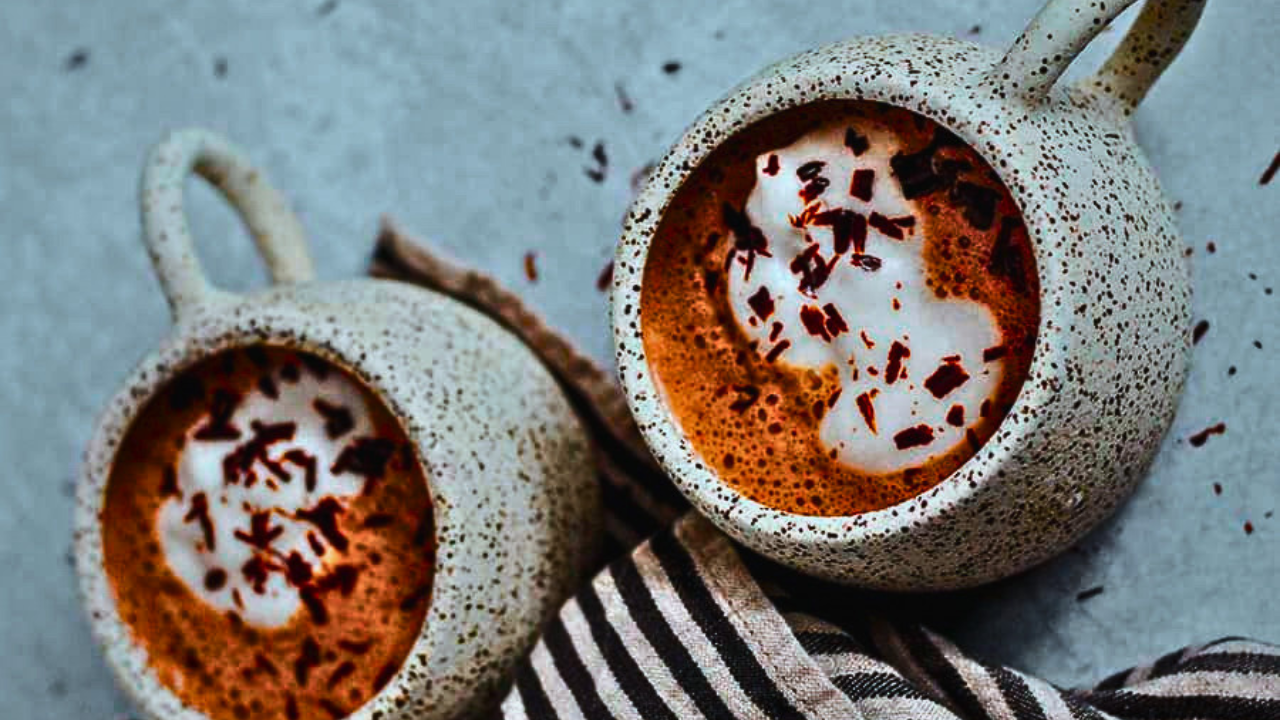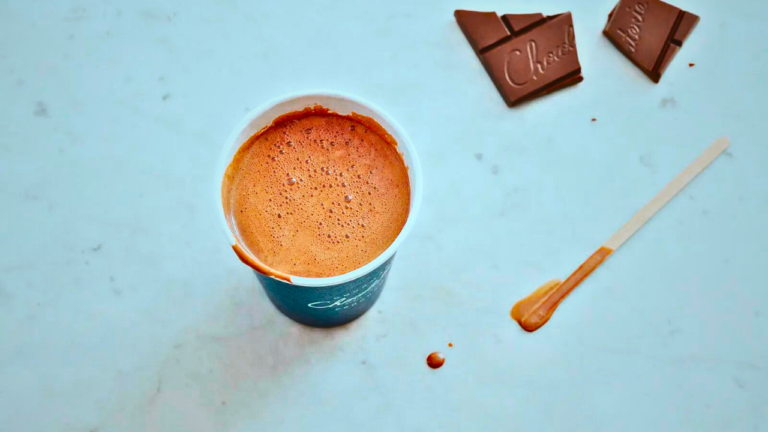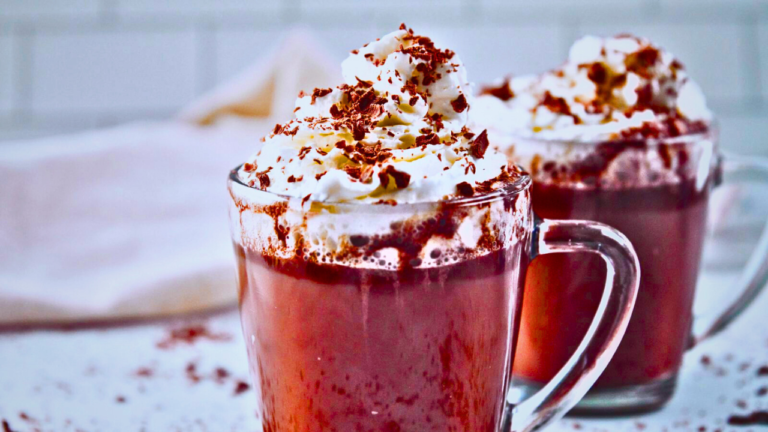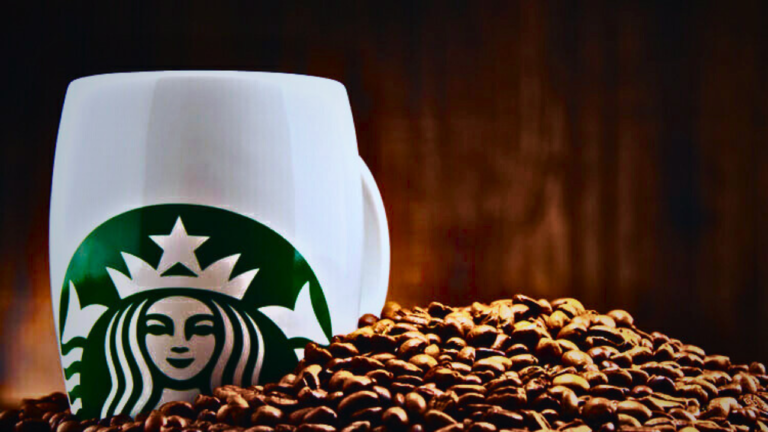Why Do I Get Sick When I Drink Hot Chocolate?
If you’ve ever asked yourself the question, “Why do I get sick when I drink hot chocolate?” you’re not alone. This seemingly simple beverage can sometimes trigger discomfort for some people. Through this article, we aim to provide comprehensive answers to your burning question. We’ll tackle the potential causes, symptoms to look out for, and what you can do to avoid feeling sick after savoring your favorite cup of hot chocolate.
Remember, while hot chocolate being a trigger is common, every individual is unique. The reasons why you feel bad after drinking hot chocolate may vary from another person’s experience. The key is to listen to your body and identify what works best for you.
Common Causes of Feeling Sick After Drinking Hot Chocolate
- Lactose Intolerance: Hot chocolate typically includes milk, which could trigger symptoms in those with lactose intolerance.
- Sugar Content: The high sugar content in some hot chocolate varieties may be a factor, especially in individuals with insulin sensitivity or diabetes.
- Caffeine Sensitivity: Some hot chocolate may contain traces of caffeine that could cause discomfort for people sensitive to it.
By comprehending the possible triggers mentioned above, you can better understand why you may be getting sick from drinking hot chocolate. As you continue reading, we will delve deeper into these causes, helping you to better understand your body’s responses and offering tips to prevent such experiences in the future. Remember, knowledge is power!
Read also: Can You Drink Hot Chocolate With Braces?
What are the common ingredients in hot chocolate?
Hot chocolate, traditionally known as drinking chocolate, is a much-loved beverage enjoyed worldwide, especially during chilly weather conditions or when someone’s looking for a little pick-me-up. Its creamy consistency and rich flavor make it an irresistible treat. But what exactly goes into this delicious drink?
- Cocoa Powder: Cocoa powder, derived from the cacao bean, is the main ingredient in hot chocolate. The powder is loaded with a robust, chocolaty flavor, but it’s also known for its high levels of caffeine and theobromine, stimulants that can cause people to feel nervous or jittery.
- Sugar: Sugar adds sweetness to the hot chocolate, yet consuming excessive sugar can lead to various health issues like obesity, diabetes, and heart disease. For those with a sensitivity or intolerance to sugar, they may experience an immediate stomach upset.
- Milk: Milk, be it full-fat, semi-skimmed, or milk alternatives, is used to give hot chocolate its creamy, velvety texture. However, lactose, a type of sugar found in milk, can cause digestive issues in people who are lactose intolerant.
- Additional Flavorings: These can range from a simple dash of vanilla extract to more exotic ingredients like chili powder or peppermint. While these additions usually enhance the flavor, for some people, they might cause allergic reactions.
Often, pre-packaged hot chocolate mixes contain added extras such as emulsifiers, stabilizers, and artificial flavors—ingredients that can cause sensitivity in some people. For example, the emulsifier carrageenan has been linked to gastrointestinal issues. Therefore, it’s important to check the ingredient list if you’re prone to such reactions.
Hence, while hot chocolate might be a treat for your senses, it’s valuable to know what goes into it and how these ingredients might affect you.
How does the temperature of hot chocolate affect the body?
Let’s delve into the question of how temperature factors in when drinking hot chocolate. Do not underestimate the significance of temperature; it’s not merely about the pleasing warmth spreading throughout your body!
Critical aspects related to the temperature of hot chocolate:
- Scalding Hot Drinks: We all enjoy a steaming mug of hot chocolate, especially during the colder seasons. However, consuming very hot drinks could cause potential harm. Studies show that regularly consuming scalding hot beverages could potentially lead to thermal injuries in your throat and digestive tract, which could include irritation, inflammation, and even long-term damage.
- Body temperature: Drinking hot chocolate can result in a temporary increase in your body temperature. This can cause your heart rate to increase and also stimulate your sweat glands; your body is working overtime to dissipate the excess heat. For some individuals, this process might trigger feelings of lightheadedness, unease, or general sickness.
- Digestive system: For your digestive system, temperature plays an important role too. Fast consumption of very hot foods or drinks can disrupt your stomach’s optimal functioning. This occurs due to the abrupt changes in temperature the stomach lining needs to tolerate, often leading to discomfort or indigestion.
While it’s integral to keep in mind these aspects, it’s also necessary to clarify that the temperature of hot chocolate isn’t the sole factor that could influence how you feel after drinking it. Other aspects, such as ingredients or personal sensitivity to certain components, also count.
Note: Always remember, our bodies have a knack for telling us when something feels off. If you consistently feel ill-effects after consuming hot chocolate, it might be worth having a chat with your healthcare professional to rule out any underlying issues.
What are the potential health benefits of drinking hot chocolate?
Despite the potential for causing discomfort in some individuals, it’s crucial to note that hot chocolate, especially if made with high-quality cocoa, teems with health benefits that extend beyond its warm, comforting, and universally loved taste. Let’s take a peek at some of the potential health benefits you can look for within that steaming mug of deliciousness.
- Rich in antioxidants: Cocoa, the key ingredient in hot chocolate, is packed with antioxidants. These powerful compounds are able to reduce inflammation, help repair damaged cells, and even guard against some types of cancer. A regular intake of antioxidants may lower the risk of many health problems, but it’s essential to keep your consumption in check.
- Improved Brain Health: Compounds, such as flavonoids present in cocoa, can help improve blood flow to the brain. This increased blood flow is linked with improved cognitive function, memory, and attention. So, that cup of hot chocolate could potentially give your brain the boost it needs!
- Promotes Heart Health: Studies have shown the capacity of cocoa, and therefore hot chocolate, to improve heart health. The flavonoids it contains help reduce blood pressure and improve circulation to the heart and brain. Even though more research is needed in this area, it can’t be denied that a little hot chocolate may lend a helping hand to your heart.
- Boosts Mood: For many, a cup of hot chocolate is pure comfort food, offering a deeply soothing effect. The chocolate in it stimulates the production of endorphins, which create a sense of pleasure and boost your mood. So, this delightful beverage can be more than just your tastebud’s buddy—it can be good for your overall temperament too!
Though it’s crucial to point out, these benefits are often associated with hot chocolate prepared with real cocoa and limited sweeteners. Many instant hot chocolate mixes are laden with sugars, sweeteners, and artificial flavors, which significantly dilute these benefits. Always choose high-quality cocoa for your hot chocolate, and remember, moderation is key.
Cheers to good health, one mug of hot chocolate at a time!
Are there any specific medical conditions that can be aggravated by drinking hot chocolate?
The rich, indulgent nature of hot chocolate certainly makes it a treat, but it might not always agree with everyone. In fact, several medical conditions may be exacerbated by the consumption of hot chocolate. Here’s a closer look at a few pertinent examples:
- Lactose intolerance: Nearly all traditional hot chocolate recipes call for the use of milk. For those who are lactose intolerant, the high lactose content in milk can lead to digestive issues like bloating, diarrhea, and nausea. If you frequently experience these symptoms after enjoying a warm mug of hot chocolate, lactose intolerance could be the root cause.
- Acid Reflux Disease (GERD): Chocolate, in general, is known to trigger acid reflux episodes in people with GERD. This is due to a particular compound in chocolate that relaxes the muscle between the stomach and esophagus, thereby allowing stomach acid to backup into the esophagus and cause discomfort.
- Migraines: Around 18% of American women and 6% of men suffer from migraines. Chocolate is often listed as a potential trigger food for these intense headaches. Researchers believe that it’s the phenylethylamine in chocolate that is likely causing the problem. This substance can alter the blood flow in your brain, potentially triggering a migraine.
- Diabetes: While there is not a direct cause-and-effect relationship, the high sugar content in many hot chocolate mixes might spike the blood sugar levels of individuals with diabetes, leading to a complication known as hyperglycemia. It’s vital for those managing their blood sugar to carefully monitor their intake of sugary treats like hot chocolate.
It’s essential to underline that everyone is unique, and not everyone with these conditions will experience adverse effects from hot chocolate. However, if you frequently feel unwell after drinking hot chocolate and you have one or more of these conditions, it might be worth discussing it with your healthcare provider.
Read also: Can You Get Hot Chocolate Pods For Nespresso Machine?
What are the possible reasons for feeling sick after consuming hot chocolate?
Feeling sick after indulging in hot chocolate may not be an uncommon occurrence, but it’s certainly a discomforting one. While each individual’s experience and tolerance may vary, there are several common triggers that can cause this discomfort. Let’s delve into a few practical reasons why the delicious beverage known for its comforting appeal may sometimes result in an unpleasant aftermath.
- Lactose Intolerance: Hot chocolate is often made with milk, one of the major ingredients listed in many recipes. Milk contains lactose, a type of sugar that many people may struggle to digest. This is known as lactose intolerance, and for those affected, consuming any dairy product, including the milk in your hot chocolate, could cause feelings of nausea.
- Chocolate Sensitivities: Although it’s uncommon, some people might be sensitive to cocoa or other ingredients in chocolate. Symptoms of this include an upset stomach or other digestive issues.
- Caffeine Effects: Did you know that cocoa contains caffeine? Yes, you heard it right! While the caffeine content is significantly less than that of coffee or tea, for those who are sensitive to caffeine, even the modest amount in hot chocolate can induce feelings of nausea or jitteriness.
- High Sugar Content: Given the delightfully sweet taste of hot chocolate, it’s not surprising that it often contains a high amount of sugar. High sugar intake can lead to discomfort, and for those with sensitivity, it can induce feelings of nausea, headaches, and even dizziness.
All of these potential triggers can contribute to feelings of sickness after drinking hot chocolate. It’s essential to note that the experience varies greatly from person to person, so one or all of these elements could be a factor. If you consistently feel unwell after drinking hot chocolate, it might be worth consulting a healthcare professional to determine if you have any underlying sensitivities or health concerns that need to be addressed.
Conclusion
Wrapping up, it’s clear that there are several factors that might contribute to the unpleasant sensation you might feel after sipping on your favorite cup of hot chocolate. Whether it’s the temperature of the drink, the ingredients involved, or a potential underlying medical condition, the path to understanding why you may feel sick after its consumption is multifaceted.
Remember, it’s not just about what’s on our plates or in our cups. Our bodies are remarkable in how they react and adapt, especially when it comes to food and drink. So while hot chocolate has numerous health benefits, due to its high levels of antioxidants and comforting warmth, it’s plausible to listen to your body when it responds negatively.
What should I do next?
- Identify the trigger: Try switching up your hot chocolate routine to narrow down the cause. Alter the temperature, change the brand, or try making it at home with minimal ingredients.
- Consult a healthcare professional. If changes in your routine don’t solve the issue, or if your symptoms are severe, it’s crucial to consult a healthcare professional for potential underlying conditions.
- Moderation is key. Remember, even a good thing can turn bad when overconsumed. Balance your diet and include hot chocolate as an occasional treat.
In conclusion, understanding why you might get sick after drinking hot chocolate involves a combination of self-observation, dietary changes, and potentially seeking medical advice. It’s essential to remember that everyone’s body reacts distinctly, so what works for someone else may not necessarily work for you. It’s all about finding the balance that suits your health and well-being.
Read also: Why Are People Putting Cheese In Their Hot Chocolate?
FAQs
Can dairy in hot chocolate make me feel sick?
Yes, some people are lactose intolerant, meaning they lack a necessary digestive enzyme to break down lactose, which is found in many dairy products used in hot chocolate recipes. Consuming lactose can lead to stomach upset, bloating, and even diarrhea in these individuals.
Could it be the caffeine in the hot chocolate that’s making me ill?
Even though hot chocolate typically contains less caffeine than coffee, it still might be enough to cause restlessness, nausea, or other digestive issues in some caffeine-sensitive individuals.
Could the sugar content in my hot chocolate be causing discomfort?
It’s feasible. High-sugar-content foods or beverages can lead to an upset stomach or a sugar “crash,” which often presents with feelings of fatigue and nausea.
Is it possible that the heat of the chocolate is causing my discomfort?
While less common, the warmth from hot beverages can irritate the lining of your stomach, leading to discomfort. If you think this may be the case, try letting your hot chocolate cool down a bit before drinking it.
Does drinking hot chocolate on an empty stomach make you more likely to feel sick?
For some people, drinking any kind of beverage on an empty stomach, hot chocolate included, can certainly lead to feelings of nausea or discomfort. This can be especially true if your beverage is high in sugar or caffeine.
Can allergies to certain ingredients in hot chocolate make me feel sick?
Definitely. Ingredients like milk, cocoa, or certain types of sweeteners could cause an allergic reaction in some people, leading to symptoms such as stomach discomfort or even more serious reactions.
Could an underlying medical condition be causing my discomfort?
Indeed. If you frequently feel sick after consuming hot chocolate or other foods, it would be wise to speak with a healthcare professional. Conditions such as gastritis, acid reflux, or gastroparesis may be the underlying issue.
Are there healthier alternatives to a traditional hot chocolate recipe?
Yes! Experiment with making your hot chocolate with non-dairy milks like almond milk or sweetening it with natural sweeteners like honey or stevia to reduce sugar content. You could also try a darker chocolate with a higher cocoa percentage.
Is it safe to ignore feeling sick after drinking hot chocolate?
While the occasional discomfort might not be a serious issue, regular instances of feeling sick after drinking hot chocolate should not be ignored. It could be a sign of an underlying digestive issue or an indication that alterations to your hot chocolate recipe or drinking habits are needed.
Could drinking hot chocolate at a particular time of day impact how I feel afterwards?
Possibly. Our bodies’ digestion systems operate differently at different times of the day, so if you typically drink hot chocolate late at night, the body might digest it differently than if consumed in the morning.

Welcome to the delightful world of “Hot Chocolate Brew,” where the art of crafting and savoring hot chocolate takes center stage. I am Smith Karen, your guide on this indulgent journey through the rich and velvety universe of hot chocolate. As a passionate enthusiast of this comforting elixir, I am thrilled to share my insights, recipes, and experiences with fellow connoisseurs and those eager to explore the diverse realm of hot chocolate.
At “Hot Chocolate Brew,” we believe that a steaming cup of cocoa has the power to warm not just your body but also your soul. Whether you’re a seasoned hot chocolate aficionado or a newcomer to the world of cocoa delights, our aim is to provide you with a delectable blend of inspiration, knowledge, and mouthwatering recipes.
Join me in uncovering the secrets behind the perfect cup of hot chocolate, from selecting the finest ingredients to experimenting with unique flavor combinations. From classic recipes that evoke nostalgic warmth to innovative twists that will surprise your taste buds, “Hot Chocolate Brew” is your go-to resource for all things cocoa-related.
Prepare to embark on a journey of indulgence, as we explore the nuances of this timeless beverage together. Get ready to elevate your hot chocolate experience and make every sip a moment of pure, chocolaty bliss. Cheers to the joyous world of “Hot Chocolate Brew”!







